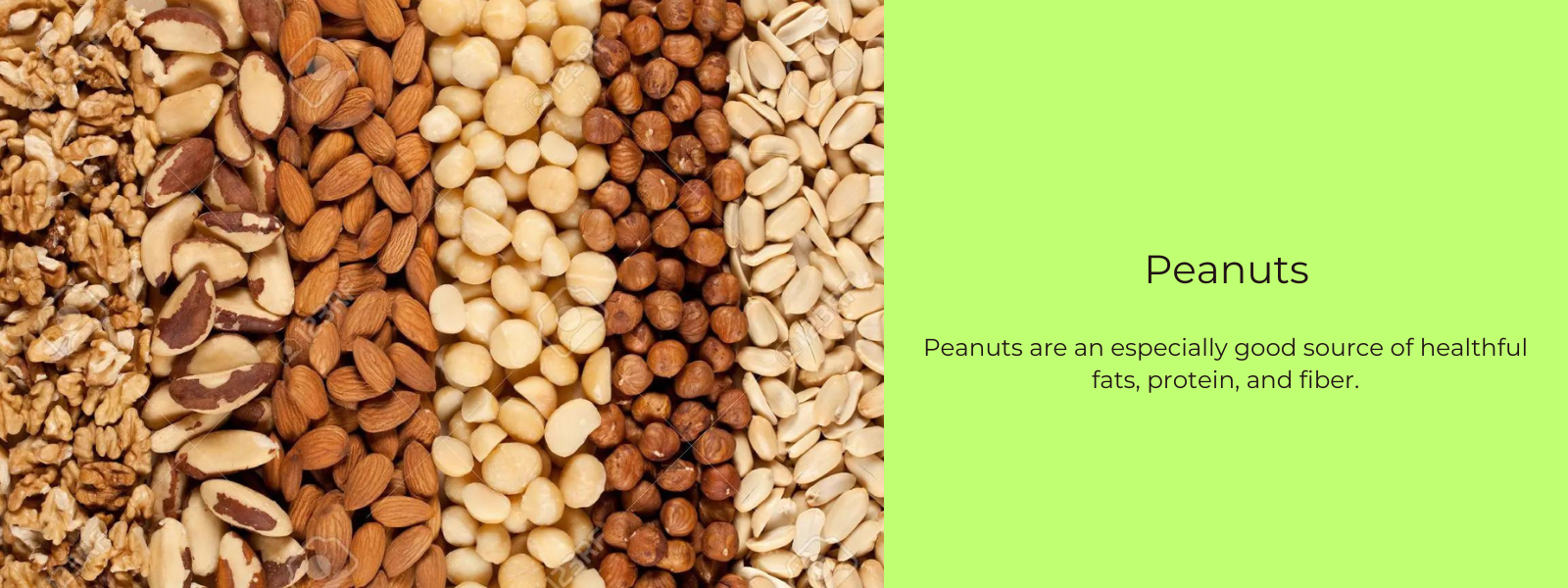Walnuts, also called Akhrot in Hindi, have been called "brain food" because their ridged shape makes them look like brains. Ironically, studies have shown that a diet rich in walnuts can boost cognitive abilities. They are simple to incorporate into one's diet and provide a wealth of health benefits. In terms of vitamins, polyunsaturated fat, and minerals like potassium, inc, iron, and magnesium, they surpass even almonds. Walnuts are the best dry fruit since they have the most fibre and antioxidants. The advantages of walnuts are listed below. You can eat them as a snack, in salads, or on top of desserts.
Walnuts (Juglans regia) are an excellent source of healthy fats, protein, fibre, and antioxidants. The health advantages of walnuts are due in part to all of these components. There are several health benefits to eating either black or brown walnuts.
Table of Contents
Health benefits of walnut:
Promote Optimal Body Composition
Walnuts are high in fibre, so eating just a few will help you feel full for hours. They aid in weight loss in a healthy way and are a great source of protein.
Beneficial to Diabetics
The danger of acquiring Type 2 diabetes is lowered by eating walnuts. They're a great source of protein, good fat, and fibre. Diabetics can safely consume them because they won't affect their weight.
Facilitates Digestion
Walnuts have a lot of fibre. This is why they are useful for intestinal cleansing and general body detoxification. They all work to prevent constipation by adding bulk to the stool.
Interesting information! The health of your digestive system can benefit from an increase in beneficial bacteria and microorganisms. Walnuts are one food that can help you achieve this goal. Increased risk of obesity, cancer, and other chronic diseases can come from gut inflammation brought on by an unhealthy microbiome. Hence, eating walnuts can protect against this. For instance, eating more of it regularly might boost beneficial gut bacteria that produce butyrate.
Good for the mind
Contrary to popular belief, walnuts are not a brain food despite their similar appearance. Many studies demonstrate that walnuts improve cognitive performance. For instance, the nut's contents may help protect the brain from oxidative damage and inflammation.
Observational studies on people have shown that eating walnuts can improve cognitive abilities like memory, reaction time, and abstract thinking.
Despite these claims, additional research is needed to confirm the positive effects of walnuts on the human brain. You can snack on them while you wait because they are healthy.
Raises Metabolism
A slow metabolism can benefit from eating a handful of walnuts. They aid in metabolism, growth, and digestion thanks to the abundance of vital fatty acids they contain.
Beneficial to Bone Health
The body is able to absorb more calcium with the help of walnuts. They also lessen calcium loss through metabolism.
Anti-Inflammatory
Walnuts' anti-inflammatory benefits are well-documented. Inflammation is the root cause of numerous diseases, including diabetes, rheumatism, arthritis, and many more. Walnuts, when eaten on a daily basis, help the body fight off various illnesses more effectively.
Walnuts or almonds- Which is better?
Health advantages of walnuts and almonds are similar enough that picking one over the other may come down to personal preference and motivation. If you're trying to slim down, almonds might be the way to go, while walnuts might be the way to improve your mental acuity.
Walnuts for weight loss:
When used sparingly, it can help you shed pounds. Walnuts' high levels of fibre, protein, omega-3 fatty acids, and omega-6 fatty acids make them effective hunger suppressants. The high fibre content keeps you full for longer. So, eating walnuts can aid in slimming down.
Walnuts for hair:
Walnuts' healthy fats help keep your head and brows from thinning. In addition, they boost hair health by feeding and fortifying your hair. Walnut oil massages have been shown to revive dormant hair follicles, bringing back your hair's natural shine. Because of its light consistency, the oil is able to hydrate the hair shaft from root to tip and mitigate dandruff. Walnuts' anti-inflammatory qualities are great for calming an itchy scalp.
Ways to have Walnuts:
There are several methods to enjoy the healthful snack outside the standard one-by-one method:
- Coating fish or chicken with the crushed form is a great option.
- You may roast them and put them in your own trail mix.
- Some of it is great on salads.
- They're great stir-fried after a quick roast.
- You can cut them into little cubes and mix them with your favourite condiments.
Ways to cook with walnuts:
Eating walnuts as a snack or including them in your regular meals is a great way to get their health advantages. Some delicious ways to use these nuts are listed below.
- You may make a nutritious smoothie by blending a banana, some yoghurt, and 2 or 3 walnuts.
- To make a tasty spread, toast some walnuts and then grind them into a powder. In a food processor, blitz walnuts with the garlic, salt, lemon juice, olive oil, and pepper.
- Make a tasty salad by tossing together chopped walnuts, diced apples, diced red and yellow bell peppers, and chopped spring onions. Mix with a garlicky, low-fat vinaigrette.
- Make a tasty dish with canned tuna, avocado, celery, and apples for a high-protein dinner. Add some freshly squeezed lime juice and toss in some toasted walnuts.
- If you're making a cookie with almonds and oats and no butter or sugar, you may add some crushed roasted walnuts.
- Caramel, blue cheese, mushrooms, port, mixed salads, penne pasta, zucchini, raisins and sherry are just few of the foods that go well with walnuts.
- Never prepare walnuts for consumption without first eating them. The freshness will be preserved in this way.
Side-effects of walnuts:
In order to reap the benefits of walnuts, it is crucial to know how much to consume. The recommended daily allowance of walnuts is four to six nuts.
To maximise its health benefits, walnuts are best consumed first thing in the morning on an empty stomach.
Walnuts have the longest shelf life when they are still in their shell. If the seal is broken, the product's freshness and longevity are compromised.
A roasted walnut is not nutritious, despite popular assumption. When walnuts are roasted, their fat is exposed to oxygen and begins to oxidise. After walnuts are roasted, their freshness and longevity are compromised.
Walnuts are best kept in their shells and stored in sealed containers.
Phytate, found in walnuts, acts as an anti-nutrient. Phytate prevents the body from absorbing minerals. Thus, excessive walnut consumption is not suggested. Instead, eat enough walnuts to reap their benefits.
Frequently asked questions on walnuts:
Ques. How many walnuts per day is ideal?
Ans. The benefits can be obtained by eating four or five walnuts.
Ques. What are the side effects of having lots of walnuts?
Ans. Walnuts are high in calories, therefore eating them in large quantities can lead to weight gain, so keep that in mind. Because of the oxalate content, they may also cause renal stones. Walnuts are high in fibre, but eating too much of them might make you sick to your stomach or bloated. The anti-nutrient phytate found in walnuts can prevent the body from absorbing minerals.
Ques. What time of day, morning or night, are walnuts best eaten?
Ans. Morning is the greatest time to eat walnuts. Walnuts are best eaten on an empty stomach, so you can soak them at night. You can also take them at night before you go to sleep.
Ques. What is the best time to eat walnut?
Ans. Walnuts are best consumed on an empty stomach first thing in the morning.
Ques. Who shouldn't eat walnuts?
Ans. Those with nut allergies should stay away from walnuts.
Ques. Can walnuts be eaten first thing in the morning?
Ans. You should definitely eat walnuts before eating anything else.
Ques. Does eating walnuts before bedtime work?
Ans. The amino acid tryptophan, found in walnuts, aids in the maintenance of a regular sleep schedule. This amino acid is useful for controlling the circadian rhythm.
Ques. Is it necessary to soak walnuts before eating them?
Ans. The phytic acid in walnuts, which prevents our bodies from absorbing minerals, is diminished by soaking them in water. A. Absolutely. Walnuts that have been soaked become more buttery in flavour and are easier to digest. Soaking them in water for a full night prior to eating is therefore recommended.
Ques. Do walnuts really help control blood sugar?
Ans. Indeed, walnuts have a high fibre content and a low glycemic index. They are harder to digest and hence provide a more gradual introduction of sugar into the bloodstream.
Ques. What is the calorie count of a single walnut?
Ans. The approximate calorie content of one walnut is 45.
Ques. Is it true that walnuts help you shed pounds?
Ans. Absolutely, it can help you lose weight if you consume it in moderation. Walnuts' high levels of fibre, protein, omega-3 fatty acids, and omega-6 fatty acids make them effective hunger suppressants. The high fibre content keeps you full for longer. So, eating walnuts can aid in slimming down.










Leave a comment